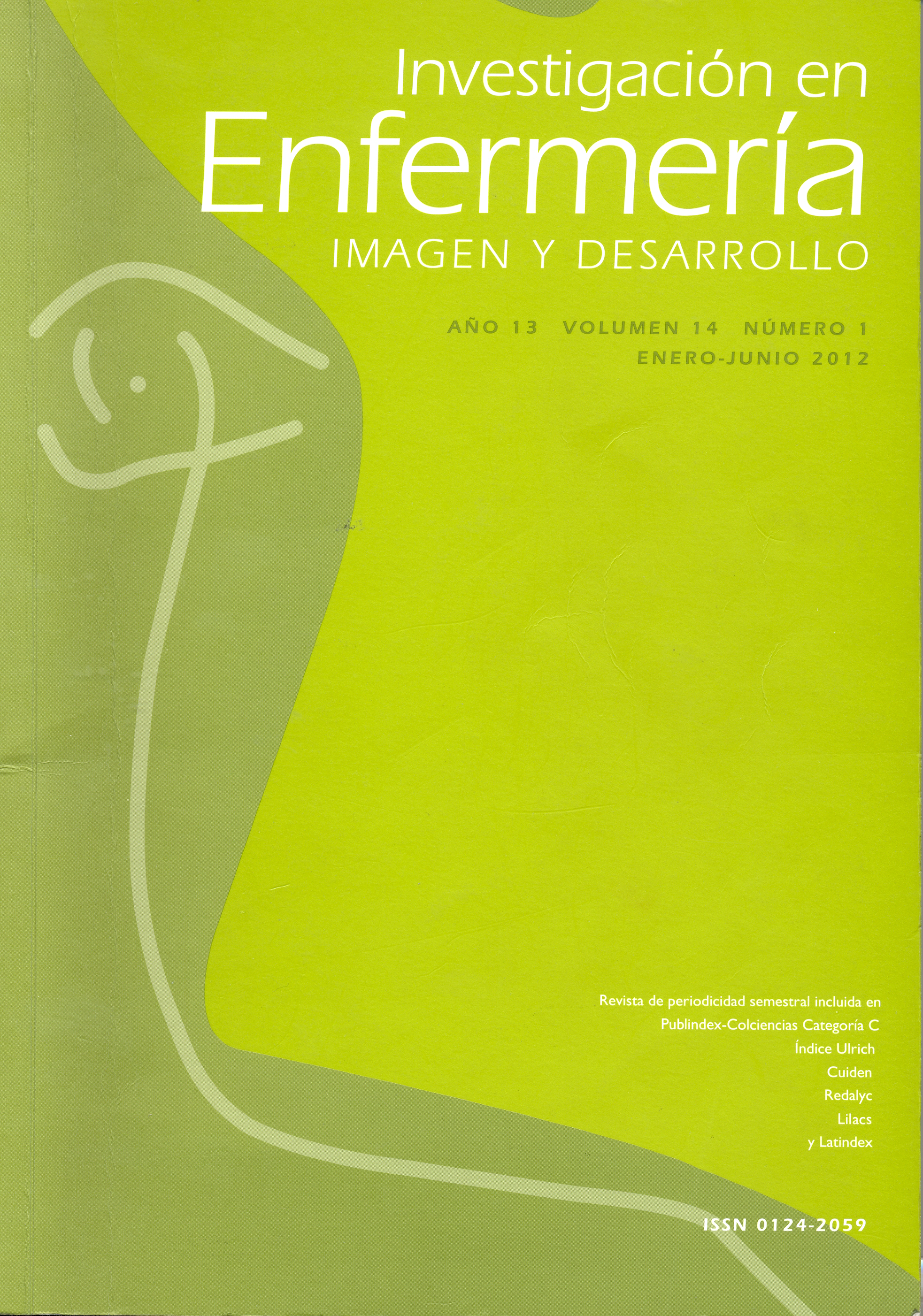Abstract
Objetive: to describe the knowledge, attitudes and practices that HIV poitive pregnant women and mothers of children under one year of age regarding their self-care and the care of their children at the San José Teaching Hospital and the integrated Specialized Health Services of the City of Popayán, in teh year 2009. Materials and Methods: qualitative ethnographic focused study. The participants were six HIV seropositive women (confirmed by Western Blot) with one child under one year of age. After obtaining informed consent, the information was collected through a personal in-depth interview and field diaries. Results: three categories (knowledge, attitudes and practices) were established from the Etic perspective; and from the Emic, we defined the following subcategories: the concept of HIV, modes of transmission, feelings, socialization, care and bonding. Stable relationships, trust and faithfulness give the impression of immunity to infection, which facilitates the denial of risk, and these women contracted the virus from their only partner. Motherhood generates physical and psychological responses aimed at meeting the needs of the new being, while environmental stimuli might break the balance and change the previous lifestyle. The fear to establish or renew relationships and the social isolation impair the ability to relate to meaningful others who can facilitate the processes of adaptation and care. Conclusions: the lack of knowledge about HIV was the most negative stimulus for participants, and hampered the process of coping and adaptation to the infection. The HIV seropisitivity diagnosis left them facing changes involving their personal support networks, family and social milieu, which affected their life expectations, overshadowed by changes in their health and by the stress associated with the stigma of the HIV status.
The journal Investigación en Enfermería: Imagen y Desarrollo is registered under a Creative Commons Attribution 4.0 International Public License. Thus, this work may be reproduced, distributed, and publicly shared in digital format, as long as the names of the authors and Pontificia Universidad Javeriana are acknowledged. Others are allowed to quote, adapt, transform, auto-archive, republish, and create based on this material, for any purpose (even commercial ones), provided the authorship is duly acknowledged, a link to the original work is provided, and it is specified if changes have been made. Pontificia Universidad Javeriana does not hold the rights of published works and the authors are solely responsible for the contents of their works; they keep the moral, intellectual, privacy, and publicity rights.
Approving the intervention of the work (review, copy-editing, translation, layout) and the following outreach, are granted through an use license and not through an assignment of rights. This means the journal and Pontificia Universidad Javeriana cannot be held responsible for any ethical malpractice by the authors. As a consequence of the protection granted by the use license, the journal is not required to publish recantations or modify information already published, unless the errata stems from the editorial management process. Publishing contents in this journal does not generate royalties for contributors.


